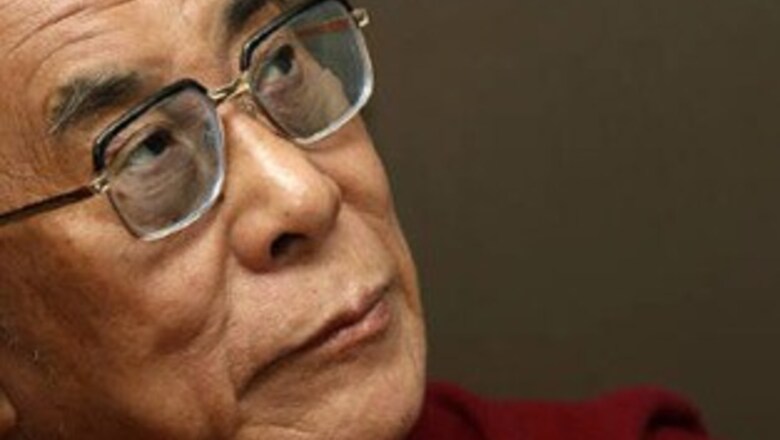
views
Dharamsala: The Dalai Lama has encouraged Tibetans in exile to embrace the democratic system of electing a leader, saying it was essential to keep step with the larger world and to ensure the continuity of their government.
In a video clip shown to hundreds of monks, nuns and lay people in Dharamsala late on Saturday, the 73-year-old also said it was no longer essential to thrust spiritual and political leadership on one person.
"The Dalai Lamas held temporal and spiritual leadership over the last 400-500 years. It may have been quite useful. But that period is over," the Nobel Prize winner said in the clip, according to a translated transcript.
"Today, it is clear to the whole world that democracy is the best system despite its minor negativities. That is why it is important that Tibetans also move with the larger world community," he said.
The Dalai Lama has suggested before it is up to Tibetans whether they continue with the spiritual institution after he dies, and could order an election among Tibetans abroad.
The Dalai Lama could also choose a successor himself from members of his government-in-exile, or a college of senior lamas could pick someone from within its ranks, removing the mysticism of the traditional selection process.
"When we put the whole responsibility in the person of the Dalai Lama, it is dangerous ... it is appropriate that a democratically elected leader lead a people's movement," he said.
"In reality, a change is happening in the responsibility of the Dalai Lama as the temporal and spiritual leader. This, I think, is very good ... a religious leader having to assume political leadership, that period is over," he said.
The Dalai Lama's succession is a sensitive issue as he ages and his health declines. Many Tibetans fear that the death of the Dalai Lama, who has lived in exile in India since fleeing a failed uprising against Chinese rule in 1959, could create a leadership vacuum that Beijing could exploit to tighten its grip.
China has said the Dalai Lama must follow "historical conventions", including an endorsement from Beijing. According to Beijing, the Dalai Lama's incarnation must be chosen by drawing lots from a gold urn given to Tibetans by the ethnic Manchu emperors of the Qing dynasty.
But the Dalai Lama has suggested his incarnation might be found outside China, or even that Tibetans themselves could order a vote on whether to continue an institution that once gave one monk both spiritual and temporal sway over Tibet.
He has also called for more democratic systems: Tibetans in exile first elected a prime minister, or Kalon Tripa, in 2001, which the Dalai Lama called a "magnificent achievement".
The current prime minister, Samdhong Rinpoche, a Tibetan monk and a Buddhist scholar, has served two terms, and the Dalai Lama has often said he was in "semi-retirement" as a political leader, asking Rinpoche to take the lead in interacting with Tibetans.
"As election takes place every five years, irrespective of whether the Dalai Lama is there or not, the exiled political system will remain secure, stable and sustainable in the long term," he said in the clip broadcast on Saturday.




















Comments
0 comment